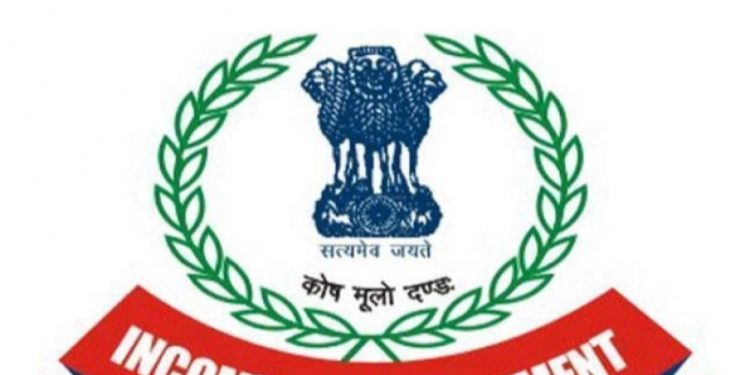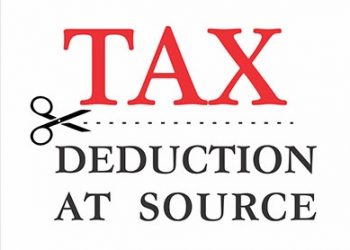Question 1: In the Form ITR-6, an unlisted company, other than a start-up, is required to furnish details of shareholding in Schedule SH-1. In a case where shares have been acquired by way of transfer, please clarify how the columns on “Date of allotment”, “Issue price” and” Amount received” should be filled up?
Answer: In case shares have been acquired by the shareholder by way of transfer, and not by way of allotment made by the company, the details of shareholding should be entered in the respective columns of the Table in Schedule SH-1, as under-
- Name of Shareholder: – Enter name of the person holding shares as on end of the previous year (current shareholder).
- Date of allotment: – Enter date on which shares were transferred to the current shareholder as per companies register.
- Face value per share: – Enter the face value per share at which the shares had been originally allotted by the company.
- Issue price per share: – Enter the price at which shares were issued by the company to the original shareholder to whom the company had allotted the shares.
- Amount received: – Enter the total amount received by the company from the original shareholder to whom the allotment of shares had been made, upto the end of the previous year.
In case of start-ups, the details of shareholding are required to be furnished in Schedule SH-2. In cases where shares of a start-up company have been acquired by the shareholder by way of transfer, the details of shareholding should be entered in the respective column of the table in Schedule SH-2, as under-
- Name of Shareholder: – Enter name of the person holding shares as on end of the previous year (current shareholder).
- Date of allotment: – Enter date on which shares were transferred to the current shareholder as per companies register.
- Face value per share: – Enter the face value per share at which the shares had been originally allotted by the company.
- Issue price per share: – Enter the price at which shares were issued by the company to the original shareholder to whom the company had allotted the shares.
- Paid up value per share: – Enter the amount received by the company for each share, from the original shareholder to whom the allotment of shares had been made, upto the end of the previous year.
- Share premium: – Enter the amount of premium per share at which shares were allotted by the company to the original shareholder.
Question 2: Please clarify whether it is mandatory to mention PAN number of shareholder in Schedule SH-1. In a case where shareholder is resident of a foreign country having no PAN, or in case where PAN of shareholder is not available for other practical reasons, it is not possible to fill up PAN of all shareholders in the Schedule SH-1.
Answer: PAN of shareholder should be furnished in Schedule SH-1, if available. However, in case the shareholder is a non-resident, having no PAN, a default value can be entered in place of PAN such as “NORES9999N”. Similarly, in case PAN of the shareholder is not available due to any other reason, a default value can be entered in place of PAN such as “NOAVL9999N”
Question3: An unlisted company registered under section 8 of Companies Act 2013 or Section 25 of the Companies Act 1956 does not have share capital. In such case, how the details required in Schedule-SH-l are required to be filled up?
Answer: In the departmental utility ofITR-6, at the beginning of Schedule SH-1, the taxpayer is required to answer the question -“Are you a company registered under Section 8 of Companies Act 2013 or Section 25 of Companies Act 1956?”. In case the taxpayer selects “Yes” in the dropdown provided against the question, the details in Schedule SH-1 are not required to be filled up.
Question 4: An unlisted company, other than a start-up, is required to furnish details of assets and liabilities in Schedule AL-1, which is mandatory. A start-up is required to furnish details of assets and liabilities in Schedule AL-2. In a case where the unlisted company I start-up does not hold any of the assets specified therein as at the end of the previous year, please clarify how the details in Schedule AL-1/Schedule AL-2 should be filled up?
Answer: In the departmental utility of ITR-6, at the beginning of Schedule AL-1/ Schedule AL-2, the taxpayer is required to answer the question -“Do you have assets and liabilities as at the end of the year as mentioned in Schedule AL-1/Schedule AL-2?”. In case the taxpayer selects “No” in the drop-down provided against the question, the details in Schedule AL-1/Schedule AL-2 are not required to be filled up. In case the taxpayer selects “Yes” in the drop-down provided against the question, it is mandatory to furnish the requisite details in at least one of the Tables given in Schedule AL-1/Schedule AL-2.
Question 5: An AOP/ BOI is chargeable to tax at slab rate. However, while filing return of income in ITR-5, the departmental utility is charging tax at maximum marginal rate?
Answer: In Part A – General of the ITR-5, the particulars of members of the AOP/BOI are required to be furnished alongwith their respective shares. In case these particulars are not provided, or incorrectly provided (e.g. total of shares of the members does not add up to 100%), the tax is being charged at maximum marginal rate.
Question 6: I am a private trust and am trying to file return of income in Form ITR-2. However, I am unable to file ITR-2 for A.Y. 2019-20.?
Answer: As per rule 12 of the Income-tax Rules, only individuals and HUFs, not having any income under the head business or profession, are eligible to file ITR-2. A private trust is required to furnish return of income in ITR-5.
Question 7: An investment fund or a business trust is required to file return of income in ITR-5. Please clarify how their income should be shown in Schedule SI etc.?
Answer: An investment fund claiming exemption under section 10(23FB) or 10(23FBA), or a business trust claiming exemption under section 10(23FC) or 10(23FCA), have to enter the amount of exempt income directly in column 12(b) or column 12(c), respectively, of the Part B – TI (computation of income) in the ITR-5. Such entities are not required to fill up the headwise details in Schedule BP, Schedule HP, Schedule CG, Schedule OS, and Schedule SI etc.
Question 8: I am a trust registered under section 12A/12AA filing return of income in ITR-7. The amount received as corpus donation should be treated as exempt. However, the departmental utility is including this amount as part of total income?
Answer: In Part A – General, in the table “Details of registration or approval under the Income tax Act”, please enter ‘section 12A/12AA’ under the column “section under which registered or approved”. Further, in the column on filing status, please choose “section 11” in the drop-down provided against the field “please specify the section under which the exemption is claimed”. If these details are furnished correctly in Part A-General, the amount of corpus donation would not be included in total income.
Question 9: I am a trust/ society/company claiming exemption under section 10 or section 13A or section 13B and filing return of income in ITR-7. However the departmental utility is charging tax even on the amount shown as exempt income?
Answer: The claim of exemption under section 10 or section 13A or section 13B by such entities should be entered directly in the relevant column of the Part B-TI (computation of income) in ITR-7. The income and expenditure statement should be furnished in the applicable Schedule i.e. Schedule 1E-1 or IE-2 or IE-3 or IE-4. Such entities are not required to fill up the headwise details in Schedule BP, Schedule HP, Schedule CG, Schedule as, and Schedule SI etc.
Download original circular from: //www.incometaxindiaefiling.gov.in/eFiling/Portal/StaticPDF_News/circular_26_2019.pdf
If you need assistance you can ask a question to our expert and get the answer within an hour or post a comment about your views on the post.














